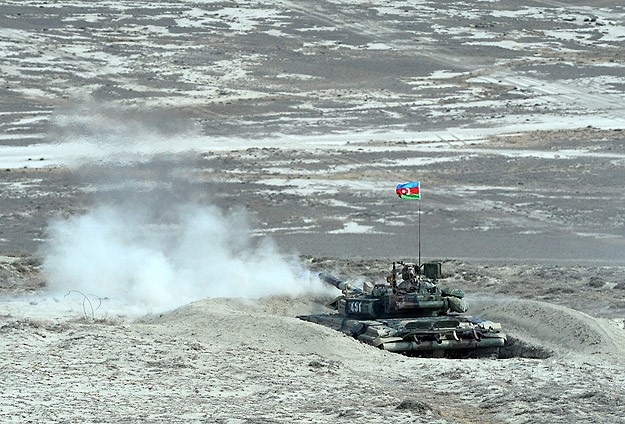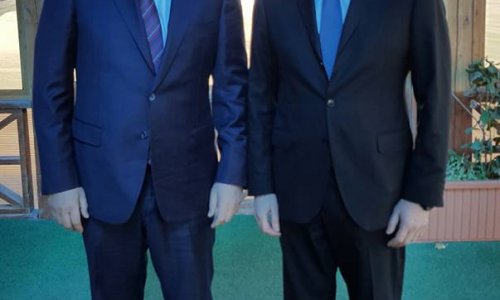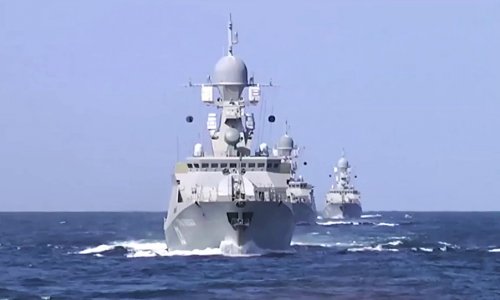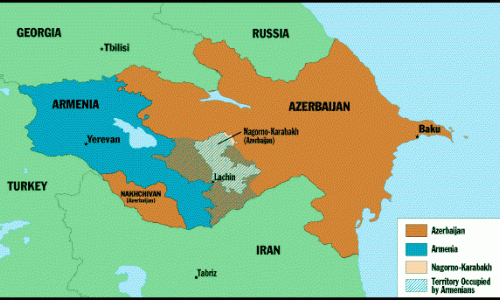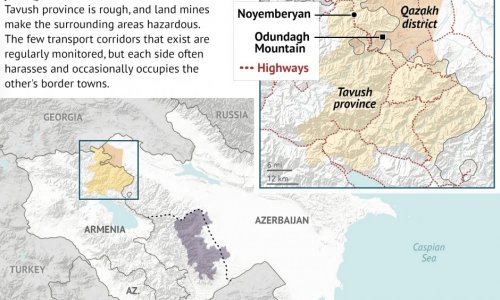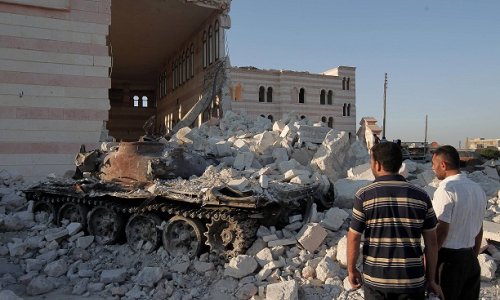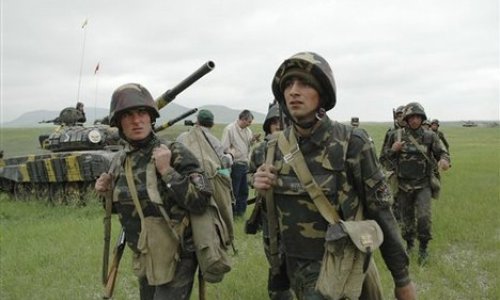(Stratfor) - Tension between Azerbaijan and Armenia continues to build over the breakaway territory of Nagorno-Karabakh. Skirmishes on the front lines March 29-30 resulted in several casualties, and Azerbaijani Defense Minister Col.-Gen. Zakir Hasanov stated March 31 that Azerbaijan would "soon liberate all occupied territories" in the region.
While a large-scale military conflict between Armenia and Azerbaijan on par with the 1988-1994 war over Nagorno-Karabakh remains unlikely, further escalations in the region cannot be ruled out. However, certain warning signs — such as a mobilization of troops and pre-positioning of supplies, as well as heightened diplomatic activity among regional players — would likely precede such escalations.
Skirmishes along the line of contact between Azerbaijan and Armenia have been a regular occurrence over the past few months. As Stratfor has previously noted, violence in the region has escalated since the Ukraine crisis broke out, including a spike in cross-border casualties in August 2014 and the downing of an Armenian helicopter by Azerbaijani forces in November.
This increase in hostilities appears to be a product of Azerbaijan's renewed assertiveness. Baku may no longer feel as threatened by an Armenian — and by extension, Russian — reprisal as it once did. This could also explain Armenia's subdued and cautious responses to acts such as the helicopter downing; Yerevan knows that Moscow is still very focused on the Ukrainian theater.
But this uptick in violence does not necessarily mean that a return to full-scale military conflict between Azerbaijan and Armenia is looming. Russia still has a military presence in Armenia, and Azerbaijan knows it cannot win a direct military confrontation with Russia, even considering Moscow's current political and economic constraints. Instead, Baku has been testing the waters with a more limited engagement along the line of contact and with diplomatic maneuvering in concert with key players such as the European Union, the United States and Turkey. This strategy demonstrates Azerbaijan's leverage to all parties involved and shows its ability to avoid making a commitment to any single country in what is still a very dynamic environment.
However, that does not mean a military conflict larger than low-level skirmishes can be completely ruled out, especially as a prolonged continuation of skirmishes can always lead to miscalculations or escalations. Indeed, recent reports from Azerbaijani newspaper Yeni Musavat citing the Baku-based Atlas Research Center suggest that Azerbaijan could be preparing a limited incursion into select Karabakh-occupied districts after the European Games, a high-profile multisport event, are held in Baku in June. In this scenario, Azerbaijan could carry out strikes on Karabakh forces in the towns of Agdam and Fuzuli without attacking Nagorno-Karabakh's main city of Stepanakert, which Azerbaijanis call Khankendi. The purpose of this would be to improve Azerbaijan's leverage in the Organization for Security and Co-operation in Europe's Minsk Group talks and force Armenia to gradually cede territory.
Such a scenario, while picked up by other media outlets, has not been raised or confirmed by any Azerbaijani officials and would represent a shift in the intensity of the conflict not seen in more than two decades. Although such action remains unlikely due to Azerbaijan's aforementioned constraints, the current geopolitical climate in the former Soviet space has created an environment in which military actions that would have previously been unthinkable are now possible.
Should Azerbaijan choose to undertake a limited operation to seize specific districts surrounding Nagorno-Karabakh, there likely would be warning signs. Indicators would not necessarily include a major weapons purchase by Azerbaijan; the country has spent more than a decade amassing equipment such as tube and rocket artillery, armor, combat engineers and their specialized vehicles, infantry, attack helicopters and fixed-wing air support, all with the Nagorno-Karabakh scenario in mind. Instead, it would be important to watch for reports of troop mobilization, the pre-positioning of supplies and activities such as intensified reconnaissance and surveillance. Any previously unscheduled meetings or security-related negotiations between the leaders of Azerbaijan and officials from key regional players such as Russia, Turkey, the European Union and the United States would also be key indicators to watch. These precursors have not yet materialized, but any combination of them could serve as important warning signs of a potential escalation over Nagorno-Karabakh.
www.ann.az
Follow us !

